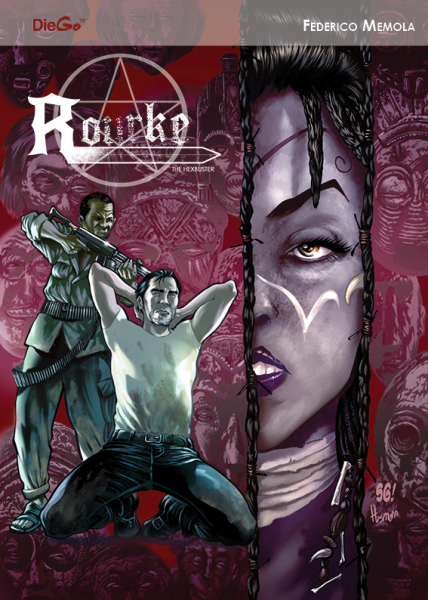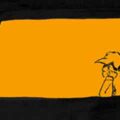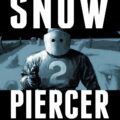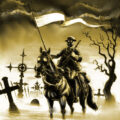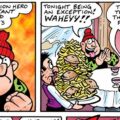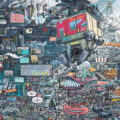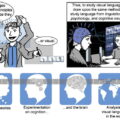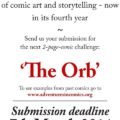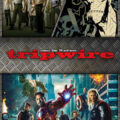The latest edition of OFF LIFE, the UK’s only street press comic, is out now, available free from the usual outlets in Bristol and London, and digitally from the comic magazine’s web site here. Issue 8 – which comes in… Read More ›
Creating Comics
Articles on creating comics, how tos, reference information and more
DieGo Comic Publishing launches Kickstarter for next “Rourke” collection
London-based DieGo Comic Publishing has just launched a Kickstarter crowdfunding campaign for the second volume of the company’s ongoing series Rourke the Hexbuster. The eagerly awaited Rourke the Hexbuster Volume II continues with a journey from Ireland to Africa, and… Read More ›
A Chat with a Homesick Truant: Comic Artist Oliver East
Manchester-based comic artist Oliver East has just launched his latest project, The Homesick Truant’s Cumbrian Yarn (ordering information for the first book below), a “walking comic” centred on the artist’s travels in the county dominated by the Lake District, commissioned… Read More ›
Panel Borders: Translating the Snowpiercer
Continuing a month of shows about French comics or bande dessinée, Alex Fitch talks to Virginie Sélavy this week on Britain’s only regular comics radio talk show, about her translation of Jacques Lob, Benjamin Legrand and Jean-Marc Rochette’s French graphic… Read More ›
Lakes Festival 24 Hour Marathon creators revealed
Five of the six creators for the 2014 Lakes International Comic Art Festival’s 24 Hour Comic Challenge have now been revealed – with one more to find. On Thursday 16th October, as part of the Festival, six comic artists will… Read More ›
Scott McCloud announced as first major guest for 2014 Lakes International Comic Art Festival
Innovative and multi-award comic creator Scott McCloud has been announced as the first official overseas guest for the 2014 Lakes International Comic Art Festival. The announcement comes hot on the heels of the event’s launch of its 24 Hour Comic… Read More ›
Lakes International Comic Art Festival announces 24 Hour Comic Marathon
The Lakes International Comic Art Festival (17-19th October 2014) has announced plans to host a 24 Hour Comic Marathon hosted by ace comics creator and educator Dan Berry – and they’re looking for comic artists to take part. Here’s the… Read More ›
Panel Borders: Régis Loisel and Peter Pan
Starting a month of shows about French comics or bande dessinée, Alex Fitch talks to cartoonist Régis Loisel about his epic graphic novel adaptation of and prequel to J.M. Barrie’s Peter Pan, published in the UK by Soaring Penguin Press…. Read More ›
Looking back on Charley’s War: An Interview with Pat Mills
If you’ve read a British comic book in the last few decades, the chances are you’ve read a story written or edited by Pat Mills. Learning his craft with DC Thomson in Dundee, Pat would go on to create Battle… Read More ›
Looking back on Charley’s War: An Interview with Pat Mills
If you’ve read a British comic book in the last few decades, the chances are you’ve read a story written or edited by Pat Mills. Learning his craft with DC Thomson in Dundee, Pat would go on to create Battle… Read More ›
Combat Colin returns in Aces Weekly
Lew Stringer talks about the latest appearance of his long-running character, Combat Colin, to David Lloyd’s Aces Weekly – and touches on some attitudes to digital comics… There’s a certain school of thought that would have us believe that digital… Read More ›
Creator Spotlight: Gerry Embleton
I had a quick phone call with ace artist John Ridgway today, discussing colouring comics, Commando and one of our favourite topics, favourite comic creators, which today included the great pulp magazine artist Alden MacWiliams (whose credits included Twin Earths,… Read More ›
Image Comics “Genesis” latest US project for British artist Alison Sampson
British comic artist and architect Alison Sampson (one of the team behind Think of a City, a tumblr-based, mass storytelling project) is providing art for a one-shot creator-owned comic, Genesis, from Image Comics, which will be published in April. Written… Read More ›
The Return of the Marvel UK Heroes: An interview with Alan Cowsill
Unless you’ve been living under a stone, you’ll be aware we’ve been giving a lot of coverage to Marvel’s Revolutionary War series, featuring the return of the Marvel UK heroes first created at the instigation of the company’s Editorial Director,… Read More ›
Image Control, the Mega-City Way: Douglas Wolk talks Judge Dredd
Douglas Wolk is an acclaimed author and critic. He has written about comics and music for publications such as Rolling Stone, The Washington Post and The New York Times. Judge Dredd: Mega-City Two – a five-issue mini-series drawn by Ulises… Read More ›
“Visual Language of Comics” earns high praise for Neil Cohn
Bloomsbury Publishing released Neil Cohn‘s The Visual Language of Comics, an academic work offering an introduction to the structure and cognition of Sequential Images last December, but it slipped under our radar in the inevitable pre-Christmas madness. Reviews for the… Read More ›
Panel Borders talks to Kieron Gillen
Continuing a month of shows about Superhero Comics on the Panel Borders radio show, Alex Fitch talks to writer Kieron Gillen about his recent about published under the Marvel Now banner, including Iron Man and Young Avengers and his forays… Read More ›
Adventures in Comics 4 – competition deadline extended
(With thanks to Paul Gravett) Great news! Adventures in Comics returns for its fourth fantastic year, inviting comics creators worldwide to submit their two-page comics for an exhibition at Marine Studios, Margate, Kent from April 1st 2014 and other venues… Read More ›
Lakes International Comic Art Festival opens Marketplace applications for 2014 weekend
Important news about the next Lakes International Comic Art Festival: if you are a creator, publisher or retailer, the Comic Clock Tower, their version of a comics marketplace and artists’ alley, is now open for applications. From this year, entry… Read More ›
Tripwire Digital interviews Ian Rankin, Maria Paz Cabardo
The comics, film and TV magazine Tripwire , published by Joel Meadows, has moved from print into digital with the launch new app edition. Until 2011, Tripwire ran as a once a year print title costing £9.99 – and following… Read More ›

